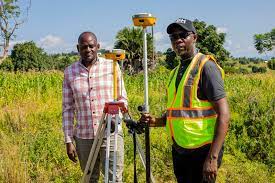By Beda Msimbe
Through the Ministry of Agriculture, the Tanzanian government has embarked on an ambitious nationwide soil health testing initiative. Eng. Juma O. Mdeke, Director of Planning and Land Use Management at the Ministry of Agriculture announced the plan during the eighth economic empowerment program launch for farmers, organized by the non-governmental organization World Vision in Dodoma city.
“The Ministry of Agriculture has now enabled extension officers across the country to be able to measure the health of the soil and involve farmers in beneficial agriculture,” said Mdeke during the announcement. “But now we have said no to testing farmer’s health. Instead, we will test the health of his soil to know which crops will be suitable for cultivation in that area.”
Eng. Mdeke added, “The 10/30 agenda starts with the health of the soil. Knowing the health of the soil empowers you to do anything. You will know what fertilizer to use, how and how much. If you use fertilizer without measurements, it is wasteful. This program will help us know how to use fertilizer in which areas and also what crops should be grown where.”
The soil health testing initiative aims to enhance sustainable farming practices across Tanzania, where agriculture employs over two-thirds of the workforce and contributes nearly 30% of the GDP. The program underscores the government’s commitment to the agricultural sector, promoting effective and sustainable farming practices under the strategic direction of Eng. Mdeke.
World Vision Tanzania Director, James Anditi, said the economic empowerment project expects to reach about 1.2 million farmers directly and another 2.2 million indirectly. “The budget of this program is 11.4 million dollars. We believe that this amount will increase because we believe that if we do good work, we will attract more donors to join our plans,” said Anditi.
Farmers are already reaping the benefits of this project. Sesilia and Cosmas, Tanzanian farmers, shared their experiences. “This organization has been able to help us. It has brought us water, built toilets, and provided us with education. I was at a shallow level, but now I am growing,” said Sesilia. Cosmas added, “I have benefited in horticulture. These gardens have enabled me to build a good permanent house, educate my children, and support my family.”
The project, launched by World Vision, will extend to sixteen regions in Tanzania, marking a significant stride in revolutionizing the country’s agricultural sector.
